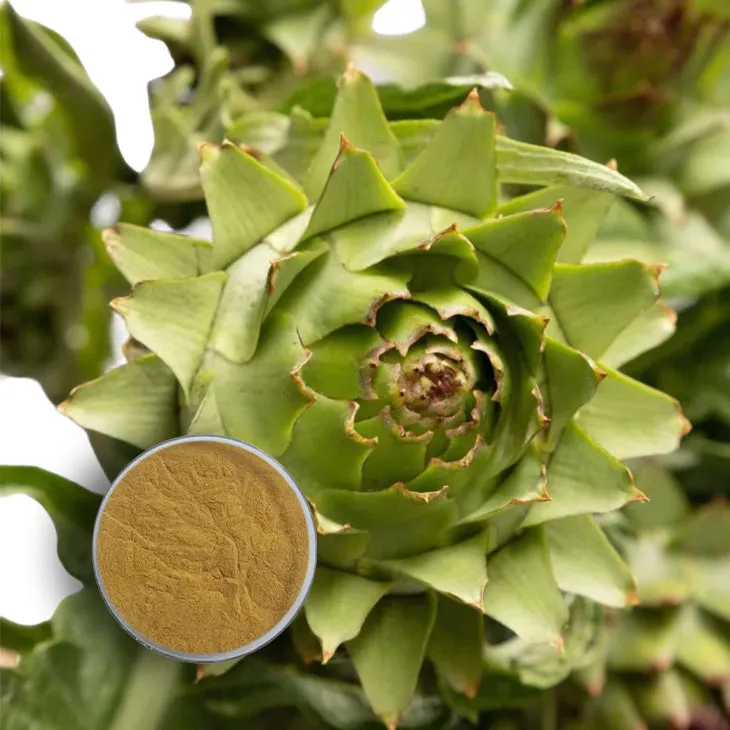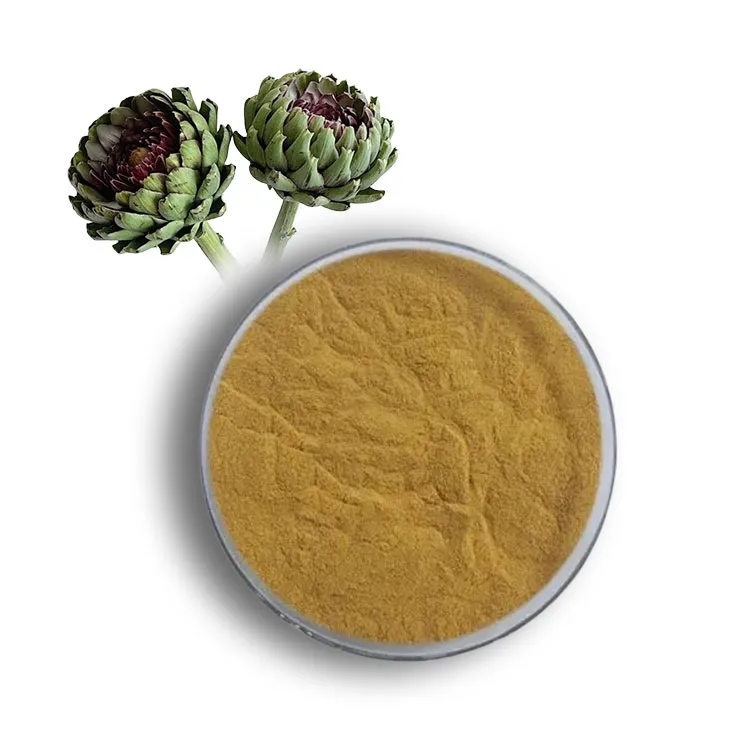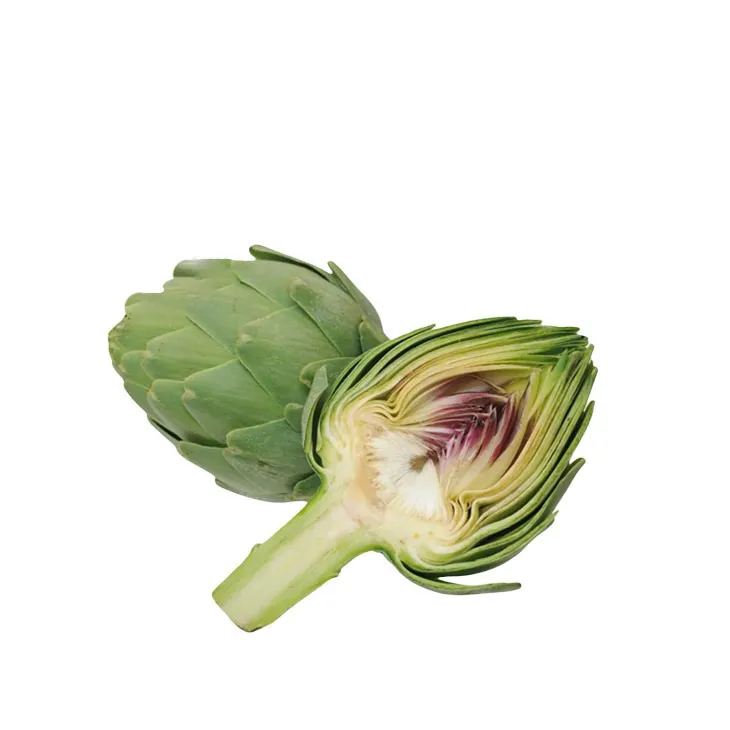- 0086-571-85302990
- sales@greenskybio.com
Five Benefits of Artichoke Leaf Extract + Dosage, Side Effects
2024-11-12

1. Introduction
Artichoke Leaf Extract has been gaining popularity in the realm of natural health remedies. Derived from the leaves of the artichoke plant (Cynara scolymus), this extract is rich in various bioactive compounds that offer a plethora of health benefits. In this article, we will explore the five major benefits of Artichoke Leaf Extract, as well as its recommended dosage and potential side effects.

2. Benefits of Artichoke Leaf Extract
2.1. Digestive Health
One of the most prominent benefits of artichoke leaf extract is its positive impact on digestive health. The extract contains compounds such as cynarin and chlorogenic acid, which stimulate the production of bile in the liver. Bile is essential for the digestion and absorption of fats in the small intestine. By increasing bile production, artichoke leaf extract can help improve the overall digestive process, especially for those who have difficulty digesting fatty foods.
Moreover, artichoke leaf extract has been shown to have a mild laxative effect. It can help regulate bowel movements and prevent constipation. This is beneficial for maintaining a healthy digestive tract and preventing digestive disorders such as irritable bowel syndrome (IBS).
2.2. Cholesterol Management
Artichoke leaf extract may also play a role in cholesterol management. Studies have suggested that the compounds in the extract can help lower LDL (low - density lipoprotein) cholesterol levels, also known as "bad" cholesterol. By reducing LDL cholesterol, artichoke leaf extract can contribute to a healthier lipid profile and a reduced risk of heart disease.
The mechanism behind this cholesterol - lowering effect may be related to the extract's ability to inhibit the synthesis of cholesterol in the liver and increase the excretion of cholesterol from the body. However, more research is needed to fully understand the extent of its impact on cholesterol levels.
2.3. Liver Health
The liver is a vital organ responsible for numerous metabolic functions, and artichoke leaf extract can support liver health. As mentioned earlier, it stimulates bile production, which is important for the liver's role in fat metabolism. Additionally, the extract has antioxidant properties that can protect the liver from oxidative stress.
Oxidative stress can damage liver cells and lead to various liver diseases. Artichoke leaf extract's antioxidants, such as flavonoids and phenolic acids, can neutralize free radicals and reduce the risk of liver damage. Some studies have also suggested that the extract may have a detoxifying effect on the liver, helping to remove toxins from the body.
2.4. Anti - inflammatory Properties
Artichoke leaf extract exhibits anti - inflammatory properties. Chronic inflammation is associated with many diseases, including arthritis, heart disease, and certain cancers. The extract contains compounds that can inhibit the production of inflammatory mediators in the body, such as cytokines and prostaglandins.
By reducing inflammation, artichoke leaf extract may help alleviate symptoms associated with inflammatory conditions. For example, in arthritis patients, it may help reduce joint pain and swelling. However, it should not be considered a substitute for medical treatment but rather a complementary approach to managing inflammation.
2.5. Blood Pressure Regulation
There is some evidence to suggest that artichoke leaf extract can play a role in blood pressure regulation. The extract may act on the blood vessels, causing them to relax and widen. This can lead to a reduction in blood pressure, especially in individuals with mild hypertension.
The exact mechanism by which artichoke leaf extract affects blood pressure is not fully understood. It may be related to its antioxidant and anti - inflammatory properties, which can improve the function of the endothelium (the inner lining of blood vessels). However, more research is required to confirm its effectiveness in blood pressure control.

3. Dosage of Artichoke Leaf Extract
The appropriate dosage of artichoke leaf extract can vary depending on the form of the extract (e.g., capsule, tincture, or powder) and the intended use. In general, for digestive support, a common dosage is around 300 - 600 mg of artichoke leaf extract per day, taken in divided doses.
When using artichoke leaf extract for cholesterol management or other health benefits, the dosage may be slightly different. It is advisable to consult a healthcare professional before starting any new supplement regimen, especially if you have pre - existing medical conditions or are taking medications.
It is also important to follow the manufacturer's instructions on the product label. Some products may recommend a specific dosage based on the concentration of active ingredients in the extract.

4. Side Effects of Artichoke Leaf Extract
While artichoke leaf extract is generally considered safe for most people, there are some potential side effects to be aware of.
- Digestive Upset: Some individuals may experience mild digestive symptoms such as nausea, bloating, or abdominal pain. These symptoms are usually mild and transient, and may subside as the body adjusts to the supplement.
- Allergic Reactions: In rare cases, people may be allergic to artichoke leaf extract. Allergic reactions can range from mild skin rashes to more severe symptoms such as difficulty breathing or swelling of the face, lips, or tongue. If you experience any signs of an allergic reaction, discontinue use immediately and seek medical attention.
- Interactions with Medications: Artichoke leaf extract may interact with certain medications. For example, it may enhance the effects of drugs used to lower blood pressure or blood sugar. Therefore, if you are taking medications for these conditions or any other medications, it is crucial to inform your healthcare provider before using artichoke leaf extract to avoid potential adverse interactions.
5. Conclusion
Artichoke leaf extract offers a range of potential health benefits, from improving digestive health to managing cholesterol levels and reducing inflammation. However, it is important to use it responsibly and be aware of its potential side effects and interactions. As with any supplement, it is always advisable to consult a healthcare professional before starting to ensure its safety and effectiveness for your individual needs.
FAQ:
What are the five benefits of artichoke leaf extract?
The five benefits of artichoke leaf extract include: Firstly, it can aid in digestion. It may help stimulate the production of bile, which is important for the breakdown and absorption of fats. Secondly, it has antioxidant properties. The extract contains compounds that can neutralize harmful free radicals in the body, reducing oxidative stress. Thirdly, it may support liver health. By promoting the flow of bile and protecting liver cells, it can contribute to a healthy liver. Fourthly, it might have a positive impact on cholesterol levels. It may help lower LDL (bad) cholesterol while maintaining or even increasing HDL (good) cholesterol. Fifthly, it could potentially improve overall well - being. Some people report increased energy and a general sense of better health after using artichoke leaf extract.
What is the proper dosage of artichoke leaf extract?
The proper dosage of artichoke leaf extract can vary depending on the form (such as capsules, tablets, or liquid) and the intended use. Generally, for a standard artichoke leaf extract supplement, a common dosage is around 300 - 600 mg per day. However, it is always best to follow the instructions on the product label or consult a healthcare professional, especially if you have any underlying health conditions or are taking other medications.
What are the potential side effects of artichoke leaf extract?
Some potential side effects of artichoke leaf extract may include mild gastrointestinal issues such as bloating, gas, or an upset stomach. In rare cases, some people may experience allergic reactions. Additionally, since artichoke leaf extract may affect liver function, those with pre - existing liver problems should use it with caution and under medical supervision.
Can artichoke leaf extract help with digestive problems?
Yes, artichoke leaf extract can be helpful for digestive problems. As mentioned before, it stimulates bile production, which is crucial for fat digestion. It may also help soothe the digestive tract and reduce symptoms like indigestion, abdominal pain, and constipation in some cases.
Is artichoke leaf extract safe for everyone?
Artichoke leaf extract is not safe for everyone. While it is generally considered safe for most healthy adults when taken in appropriate doses, those with allergies to artichokes or related plants should avoid it. Pregnant or breastfeeding women should also consult a doctor before using it, as there is not enough research on its safety during pregnancy and lactation. People with liver or gallbladder diseases should use it with caution and only under medical guidance.
Related literature
- The Health Benefits of Artichoke Leaf Extract: A Review"
- "Artichoke Leaf Extract: Dosage, Efficacy, and Safety Considerations"
- "Exploring the Role of Artichoke Leaf Extract in Digestive Health"
- ▶ Hesperidin
- ▶ Citrus Bioflavonoids
- ▶ Plant Extract
- ▶ lycopene
- ▶ Diosmin
- ▶ Grape seed extract
- ▶ Sea buckthorn Juice Powder
- ▶ Fruit Juice Powder
- ▶ Hops Extract
- ▶ Artichoke Extract
- ▶ Mushroom extract
- ▶ Astaxanthin
- ▶ Green Tea Extract
- ▶ Curcumin
- ▶ Horse Chestnut Extract
- ▶ Other Product
- ▶ Boswellia Serrata Extract
- ▶ Resveratrol
- ▶ Marigold Extract
- ▶ Grape Leaf Extract
- ▶ New Product
- ▶ Aminolevulinic acid
- ▶ Cranberry Extract
- ▶ Red Yeast Rice
- ▶ Red Wine Extract
-
Citrus bioflavonoids
2024-11-12
-
Rosemary extract
2024-11-12
-
Hericium erinaceus extract powder
2024-11-12
-
Nettle leaf extract
2024-11-12
-
Chia Seed Powder
2024-11-12
-
Soy Extract
2024-11-12
-
Cocoa Extract
2024-11-12
-
White mustard seed extract
2024-11-12
-
Yam Extract
2024-11-12
-
Scutellaria Extract
2024-11-12





















